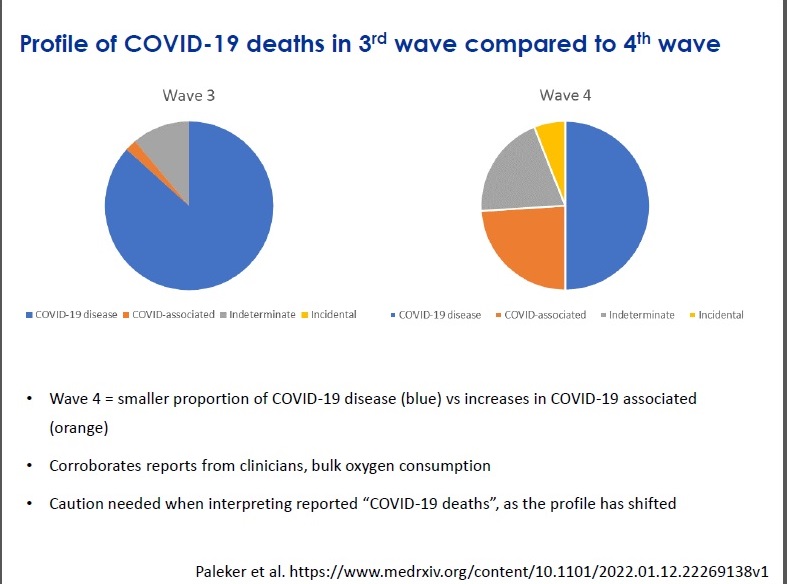NATIONAL NEWS - The Western Cape Department of Health has recorded a notable decrease in patients dying from COVID-19 disease when comparing the fourth wave with the third wave.
The department has also undertaken a rapid analysis of the first 50 deaths recorded in the public sector during the fourth and third waves. This was done to understand the impact of COVID-19, and whether the profile of those dying had changed.
The analysis was conducted by two highly experienced clinicians, independently, identifying four different categories of COVID-19 deaths:
1. COVID-19 disease: where there is evidence of COVID-19 pneumonia.
2. COVID-19 associated: where there is no evidence of COVID-19 pneumonia, but other underlying conditions worsened by COVID-19 infection including stroke, TB, and cancer.
3. Incidental: the death was clearly incidental and was recorded as such by the attending clinician.
4. Indeterminate: the data did not allow for the death to be classified in any of the above categories.
This analysis found that in the third wave 78% of the deaths analysed were caused by COVID-disease, but this reduced significantly to 50% during the fourth wave.
 The analysis found that in the third wave 78% of the deaths analysed were caused by COVID-disease, but this reduced significantly to 50% during the fourth wave.
The analysis found that in the third wave 78% of the deaths analysed were caused by COVID-disease, but this reduced significantly to 50% during the fourth wave.
TB and cancer
At the same time, there was an increase in the proportion of COVID-19 associated deaths during the fourth wave, largely attributed to cancer and TB.
Finally, the fourth wave started to see a noting of incidental deaths, while none were noted during the third wave analysis. This is when the death is not related to COVID-19 at all.
Dr Keith Cloete, head of health, said this corroborates the department's analysis of oxygen usage in the Western Cape during the fourth wave, which is a highly robust measure for COVID-19-caused hospitalisation.
"During the fourth wave, we did not record a growth of 50% in oxygen usage even at the peak, meaning that we stayed on the lowest tier of our COVID-19 response trigger system. All of this points to a less severe pandemic and is unequivocal support for the normalisation of our response to COVID-19."
 Another view of how the profile of deaths changed in the fourth wave.
Another view of how the profile of deaths changed in the fourth wave.

















